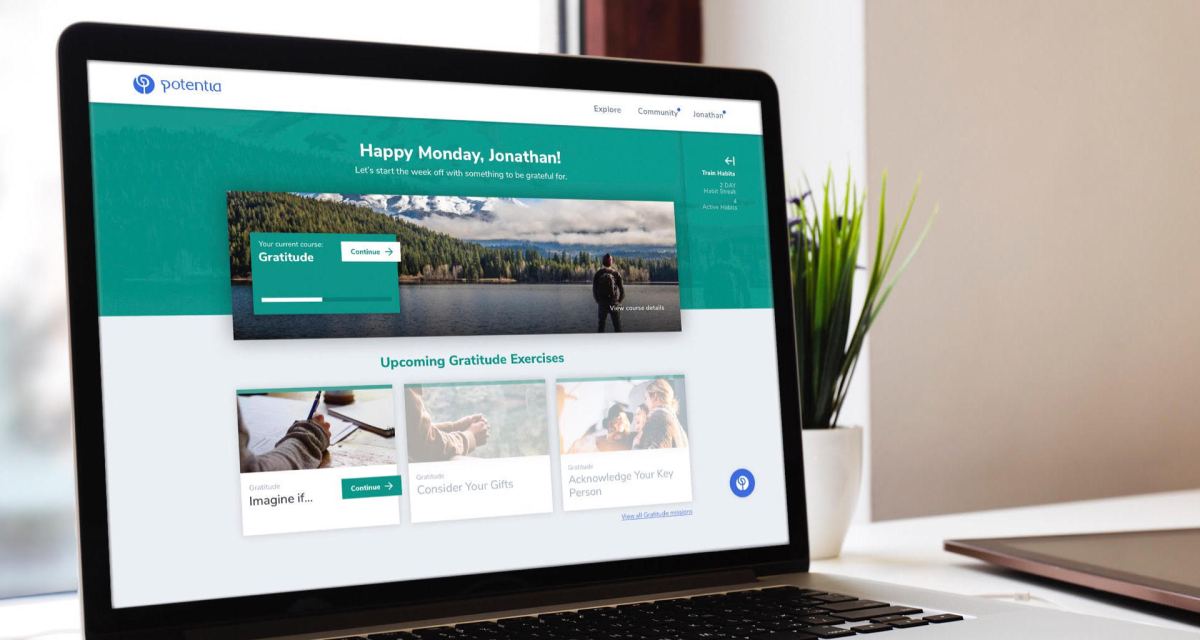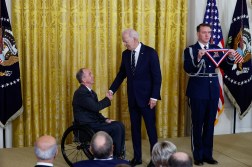Meet the startup building PTSD-fighting software for veterans

Although federal agencies are paying more attention to startups than ever before, a lot of the relationships don’t develop at a tech-industry pace. For the small San Diego-based software company Potentia Labs, getting from pitch to product has taken a lot of patience.
About three years’ worth, in fact. But Potentia’s patience proved to be a virtue — after several years of building its visibility with the government, the company is now midway through a nearly $1 million contract with a dream client, the Department of Veterans Affairs, to create a digital tool for fighting post-traumatic stress disorder (PTSD).
Back in 2014, co-founders Eric Lenhardt and Dustin Milner pitched their online learning platform for emotional wellness skills to an industry innovation competition hosted by the VA Center for Innovation (VACI). The competition, one of three held by the VACI in 2014 and 2015, focused on veterans’ mental health, a priority for the agency.
The software, also called Potentia, aims to help former military personnel “build skills like mental toughness and emotional agility,” says Lenhardt, a veteran himself. The company did not focus on veterans initially, and the team had limited experience with government contracting. Lenhardt simply found the broad agency announcement and suggested they send in a concept paper.
“It sounded like it was right up our alley,” Lenhardt said.
Lenhardt and Milner submitted a short paper to the VACI in September 2014 and then … they waited.
Nine months later — a long time by startup standards — they received a reply. VACI was interested, and the company had 30 days to submit a full, 60-page proposal. “That was kind of exciting and alarming,” Lenhardt said, recalling the company’s reaction after receiving the notice on June 1, 2015.
Potentia had started with a focus on corporate clients, so Lenhardt and Milner had to adjust to explaining how the learning software could work in the context of veterans’ mental health. Part of it, Milner explained to FedScoop, lies in the use of positive psychology. Rather than focusing on a person’s problems or weaknesses, the online courses Potentia offers allow users to build on the strengths they already have. This is different from a lot of traditional therapy experiences and “more in line with the warrior mindset,” Milner argued.
Potenia will offer veterans short courses paired with alerts that remind them to practice desired habits. The content comes from the more than 20 researchers and psychologists, the company says.
By May 2015, the team at Potentia knew it had won the VACI competition. It wasn’t until July 2017, though, that the the eight-person company started a 12 month, $967,000 contract to develop a product specifically for veterans. They quickly dropped their work with corporate clients and went all in.
The focus on the VA contract has put the company back in “stealth mode,” Milner said, and it’s not taking new clients until the contract is over. The team hopes to wrap up development by May to do two months of user-testing before turning the product over to the VA for clinical trials.
Milner said Potentia has seen “really positive results” in well-being and engagement in trials outside of the veteran community.
“I’m excited to get it into the hands of veterans,” Milner said. “Hands down.”
VACI pushes innovation at the VA in ways that go beyond bringing in startups. In addition to running industry competitions, VACI holds internal VA innovation challenges and supports culture change through an Innovator’s Network.
“It’s been fantastic” working with the VACI, Lenhardt reflected. “The VA is actually doing a lot for veterans. They’re trying hard. There’s a lot of great programs out there.”






